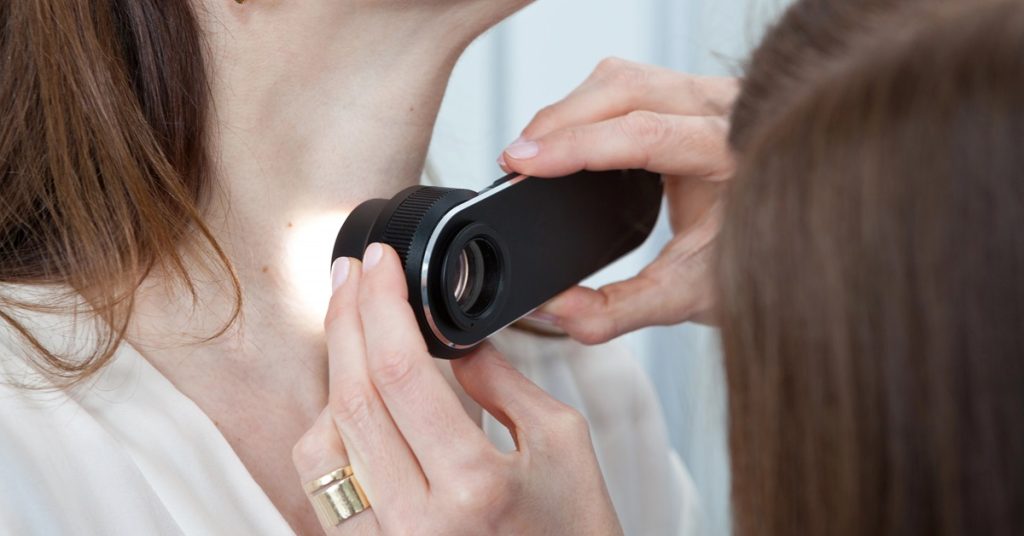The Marietta Dermatologist’s Guide to Redness & Vascular Therapies

The Marietta Dermatologist’s Guide to Redness & Vascular Therapies provides valuable information on understanding and managing redness and vascular conditions. These conditions can be caused by several factors, including genetic predisposition, sun damage, rosacea, and certain medical conditions such as lupus or vasculitis. Understanding the underlying causes can help in developing effective treatment strategies.
Common Symptoms and How They Affect the Skin
Redness and vascular conditions can manifest in diverse ways and affect the skin in various areas of the body, requiring different therapies for our Marietta patients. Common symptoms include visible blood vessels, flushing or blushing, red patches or spots, facial spider veins, and skin sensitivity.
These conditions can have a significant impact on a person’s overall appearance and self-confidence. The visible redness and visible blood vessels can make the skin appear inflamed or irritated, which usually requires some forms of vascular therapy for our patients in Marietta.
The Marietta Dermatologist’s Guide to Redness & Vascular Therapies emphasizes the importance of early diagnosis and treatment to minimize the potential complications and discomfort associated with redness and vascular conditions. It suggests various lifestyle changes, skincare routines, and potential treatment options to manage and reduce redness and vascular symptoms.
Top Therapies for Redness and Vascular Conditions
When it comes to dealing with redness and vascular conditions, seeking the right therapies available in Marietta can make a world of difference. Here are some of the top treatment options available today.
Laser Therapy for Redness and Vascular Conditions
Laser therapy has become a popular and effective option for treating redness and vascular conditions in Marietta. This non-invasive treatment targets the affected blood vessels with precision, helping to reduce redness and improve the appearance of the skin. The laser emits a wavelength of light that specifically targets the blood vessels, causing them to contract and fade away over time. Laser therapy is safe and offers long-lasting results, making it a preferred choice for many patients.
Intense Pulsed Light (IPL) Treatment Options
Intense Pulsed Light (IPL) treatment is another effective therapy available in Marietta for reducing redness and improving the appearance of vascular conditions. IPL uses a broad spectrum of light to target the blood vessels causing the redness. The light is absorbed by the blood vessels, causing them to collapse and fade away. This treatment is ideal for patients with rosacea, spider veins, and other vascular conditions. IPL is a non-invasive procedure that requires no downtime, allowing patients to resume their daily activities immediately after treatment.
Whether you opt for laser therapy or IPL treatment for your redness or vascular condition, it is important to consult with one of our board-certified Marietta dermatologists to determine the most suitable option for your specific condition. Our dermatologists specialize in treating redness and vascular conditions for many of our Marietta patients, offering personalized care and the latest therapies to help you achieve healthier, clearer skin.
Remember to always discuss your options with a professional and follow their recommendations for the best results. With the right therapies, you can effectively reduce redness and improve the appearance of vascular conditions, giving you the confidence to put your best face forward here in Marietta.
Understanding and Treating Certain Conditions
Rosacea: Causes and Treatment Options
Rosacea is a chronic skin condition that causes redness on the face, often accompanied by small bumps and visible blood vessels. While the exact cause of rosacea is unknown, factors such as genetics, sun exposure, and certain triggers can contribute to its development. Fortunately, there are several therapy options available from our Marietta dermatologists to manage and reduce redness and vascular conditions caused by rosacea.
- Topical creams and gels: Prescription creams and gels containing ingredients such as azelaic acid or metronidazole can help reduce redness and inflammation associated with rosacea.
- Oral medications: In some cases, oral medications, such as antibiotics or low-dose isotretinoin, may be prescribed to control rosacea symptoms.
- Laser and light therapies: We offer advanced laser and light therapies here in Marietta that can effectively target and reduce redness and visible vascular vessels associated with rosacea.
Spider Veins: Understanding and Treating the Condition
Spider veins are small, dilated blood vessels that appear close to the surface of the skin, usually on the legs or face. They can be caused by a range of factors, including genetics, hormonal changes, and prolonged sitting or standing. If you’re looking to treat spider veins and achieve smoother-looking skin, we offer effective options such as:
- Sclerotherapy: This procedure involves injecting a solution into the affected blood vessels to make them collapse and fade away.
- Laser treatments: Laser therapy can target and eliminate spider veins by delivering precise bursts of light energy to the affected area.
Tips for Managing Redness and Vascular Conditions
If you are dealing with redness and vascular conditions on your skin, it’s essential to have a skincare routine in place and make certain lifestyle changes to prevent flare-ups. Here are some tips recommended by our dermatologists:
Skincare Routines for Reducing Redness
- Gentle Cleansing: Avoid harsh soaps and cleansers. Instead, opt for mild cleansers without fragrance to avoid irritating the skin.
- Moisturize: Use a moisturizer specifically designed for sensitive or redness-prone skin. Look for ingredients like aloe vera, chamomile, or green tea extract that have soothing properties.
- Sun Protection: Apply a broad-spectrum sunscreen with SPF 30 or higher. Protecting your skin from the sun’s harmful UV rays can prevent redness and inflammation.
- Avoid Triggers: Pay attention to products or environmental factors that trigger redness for you. It could be certain skincare ingredients, spicy foods, or extreme temperatures. Try to avoid them or find alternatives that work better for your skin.
Lifestyle Changes to Prevent Flare-Ups
- Manage Stress: Stress can aggravate redness and vascular conditions. Practice stress-reducing activities like yoga, meditation, or deep breathing exercises.
- Diet Modification: Incorporate anti-inflammatory foods into your diet, such as leafy greens, berries, fatty fish like salmon, and olive oil. These foods can help reduce inflammation and maintain healthy skin.
- Avoid Alcohol and Smoking: Both alcohol and smoking can worsen redness and vascular condition symptoms. Limit or eliminate their consumption.
- Keep Skin Cool: Avoid hot showers or baths, as hot water can trigger redness. Use lukewarm water instead and pat your skin dry gently.
Remember, it’s important to consult with one of our board-certified Marietta dermatologists to determine the best therapies for your redness or vascular condition. Following these skincare routines and making lifestyle changes can help manage redness and vascular conditions effectively.
Choosing a Qualified Dermatologist
When it comes to addressing redness and vascular issues and potential therapies, finding the right Marietta dermatologist is crucial. Here are a few tips to help you select a qualified professional:
- Experience and expertise: Look for a dermatologist who specializes in vascular treatments and has extensive experience in dealing with these conditions. They should have a deep understanding of the latest techniques and technologies available for effective treatment.
- Credentials and certifications: Ensure that the dermatologist is board-certified and affiliated with reputable medical associations. These credentials provide assurance of their knowledge and adherence to high standards of care.
- Reputation and reviews: Check the dermatologist’s reputation and read reviews from previous patients. Positive reviews and testimonials can give you confidence in their abilities and the quality of their services.
Questions to Ask During a Consultation
To ensure that you are making an informed decision, here are some important questions to ask your dermatologist during a consultation:
- What treatment options are available: Ask about the different treatments that can help address your specific vascular concern. Understand the potential risks, benefits, and expected outcomes associated with each option.
- How many sessions will be required: Inquire about the number of sessions needed for the treatment to achieve desired results. This will help you plan and manage your expectations.
- What is the recovery process like: Understand the recovery process and any aftercare instructions that need to be followed. This will allow you to make the necessary arrangements and plan for any downtime.
- Are there any potential side effects: Discuss any potential side effects or risks associated with the treatment and how they can be managed.
By carefully selecting a qualified Marietta dermatologist and asking the right questions, you can ensure that you receive the best therapies for your redness or vascular condition. Your DESSNA dermatologist will guide you through the process and help you achieve healthier, smoother-looking skin.
Sources
- Combination of specific vascular lasers and vascular intense pulsed light improves facial telangiectasias and redness
- High-resolution optoacoustic imaging of tissue responses to vascular-targeted therapies”
- Peripheral vascular diseases
- Introduction to vascular ultrasonography
- Management of facial erythema of rosacea: what is the role of topical α-adrenergic receptor agonist therapy?



